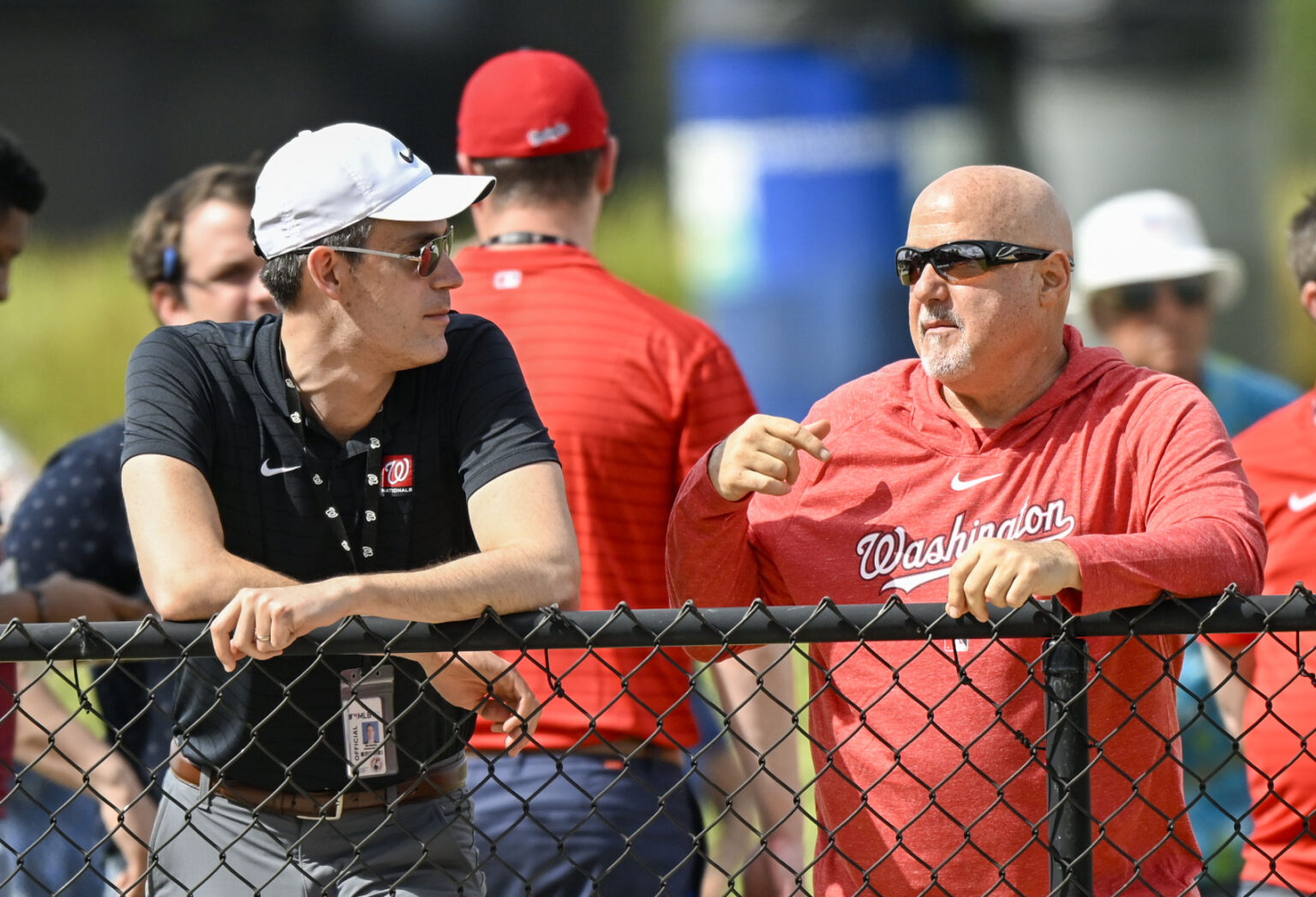Washington Nationals’ Leadership Transition: A New Chapter Begins
St. Louis – The recent appointment of Mike DeBartolo as the interim head of baseball operations for the Washington Nationals marks a pivotal moment, though whether it signals a true shift or merely a transitional phase remains uncertain. With only a few months in the role, DeBartolo’s first public remarks suggest a commitment to redefining the franchise’s approach, emphasizing innovation and strategic overhaul.
Acknowledging the Past, Embracing the Future
During a pre-game interview at Busch Stadium before the Nationals faced the St. Louis Cardinals, DeBartolo expressed gratitude toward his predecessor, Mike Rizzo, recognizing the foundation laid over the years. However, he also made it clear that his vision diverges significantly: “The fans deserve better, and we’re all eager for meaningful change. We have promising young talent, but it’s clear that incremental improvements won’t suffice. We need a comprehensive transformation.”
He highlighted plans to incorporate advanced data analytics, cutting-edge technology, and innovative methodologies into every facet of the organization’s decision-making processes. “Our goal is to enhance player development, scouting, and roster construction by leveraging modern tools,” DeBartolo explained. “This isn’t just about tweaking strategies; it’s about fundamentally evolving how we operate at every level.”
Interim Manager’s Approach: Maintaining Continuity or Pioneering Change?
Meanwhile, interim manager Miguel Cairo, who took charge immediately after Martinez’s departure, pledged to uphold the team’s existing culture. His focus was on honoring the legacy of Dave Martinez, aiming for a “1-0” mindset-winning the next game as a tribute to his predecessor. This stance suggests a conservative approach, emphasizing stability and familiarity.
In contrast, DeBartolo’s outlook is rooted in bold innovation. His emphasis on data-driven decision-making and organizational overhaul signals a desire to break from the past and forge a new identity-one that could potentially reverse the franchise’s recent struggles, which have seen the Nationals accumulate more losses than all but a handful of teams since their 2019 World Series victory.
The Path to a Competitive Rebirth
MacKenzie Gore, the team’s promising young ace, voiced a sentiment shared by many fans: “We’re all tired of losing. That’s the biggest hurdle we need to overcome.” Addressing this challenge requires more than just hope; it demands strategic action.
One pressing question is how DeBartolo, with his extensive experience within the organization since 2012, can bring a fresh perspective. While some might question whether someone so familiar with the current system can catalyze meaningful change, his deep understanding of the franchise’s internal workings could be an asset. His recent public statements indicate a focus on integrating advanced analytics into scouting, player evaluation, and international signings-areas crucial for building a competitive roster.
Building a Modern Baseball Operations Department
Transforming the Nationals into a modern powerhouse will necessitate significant investment in personnel and technology. Upgrading scouting systems, analytics platforms, and player development infrastructure requires financial commitment and strategic foresight. DeBartolo acknowledged this, stating, “The ownership is motivated to build a winner quickly. They’re asking the right questions about how best to allocate resources-whether that’s staffing, technology, or player acquisitions.”
This proactive stance is vital, especially considering the upcoming draft and trade deadline. The Nationals hold the first pick in Sunday’s draft, and DeBartolo plans to be actively involved in the process, working closely with scouts to evaluate prospects. His engagement suggests a hands-on approach aimed at identifying game-changing talent.
The trade deadline, set for July 31, also looms large. DeBartolo’s openness to listening to offers and considering strategic trades-particularly involving young stars like MacKenzie Gore-could reshape the roster. Gore, who has expressed awareness of the volatility in professional sports, remains a key piece in the franchise’s rebuilding puzzle.
Strategic Considerations and Future Outlook
DeBartolo’s approach echoes successful leadership models seen in other sports franchises. For instance, when the Washington Capitals transitioned from George McPhee to Brian MacLellan as GM, the organization benefited from internal continuity combined with fresh strategic insights, culminating in back-to-back Presidents’ Trophies and a Stanley Cup victory.
Similarly, DeBartolo’s intimate knowledge of the Nationals’ internal processes positions him to identify areas for improvement and implement innovative solutions. His emphasis on data and technology integration across all organizational levels signals a commitment to modernizing the franchise’s operations.
The Road Ahead: From Interim to Long-Term Vision
While Cairo’s focus remains on maintaining team cohesion and winning games in the short term, DeBartolo’s broader vision aims at long-term success. The next few months will be critical: the draft, the trade deadline, and the ongoing evaluation of roster and organizational strategies.
The Nationals’ ownership must support this transformation by providing the necessary resources and backing DeBartolo’s initiatives. The question remains: Will they commit to the substantial investments required to elevate the franchise to championship contention?
In the coming weeks, DeBartolo will likely face tough questions from ownership about funding upgrades and strategic priorities. His response will be pivotal in determining whether this interim period evolves into a sustained era of success.
Final Thoughts: A New Chapter in Washington Baseball
This leadership transition presents a unique opportunity for the Nationals to reinvent themselves. DeBartolo’s willingness to challenge the status quo and embrace innovation could be the catalyst needed to reverse years of underperformance. As the franchise navigates the complexities of roster building, technological integration, and organizational culture, all eyes will be on how effectively this new leadership can translate vision into victory.
The journey from a team that has struggled to find consistent success to a perennial contender begins now. The decisions made in the coming months will shape the future of Washington baseball for years to come.

